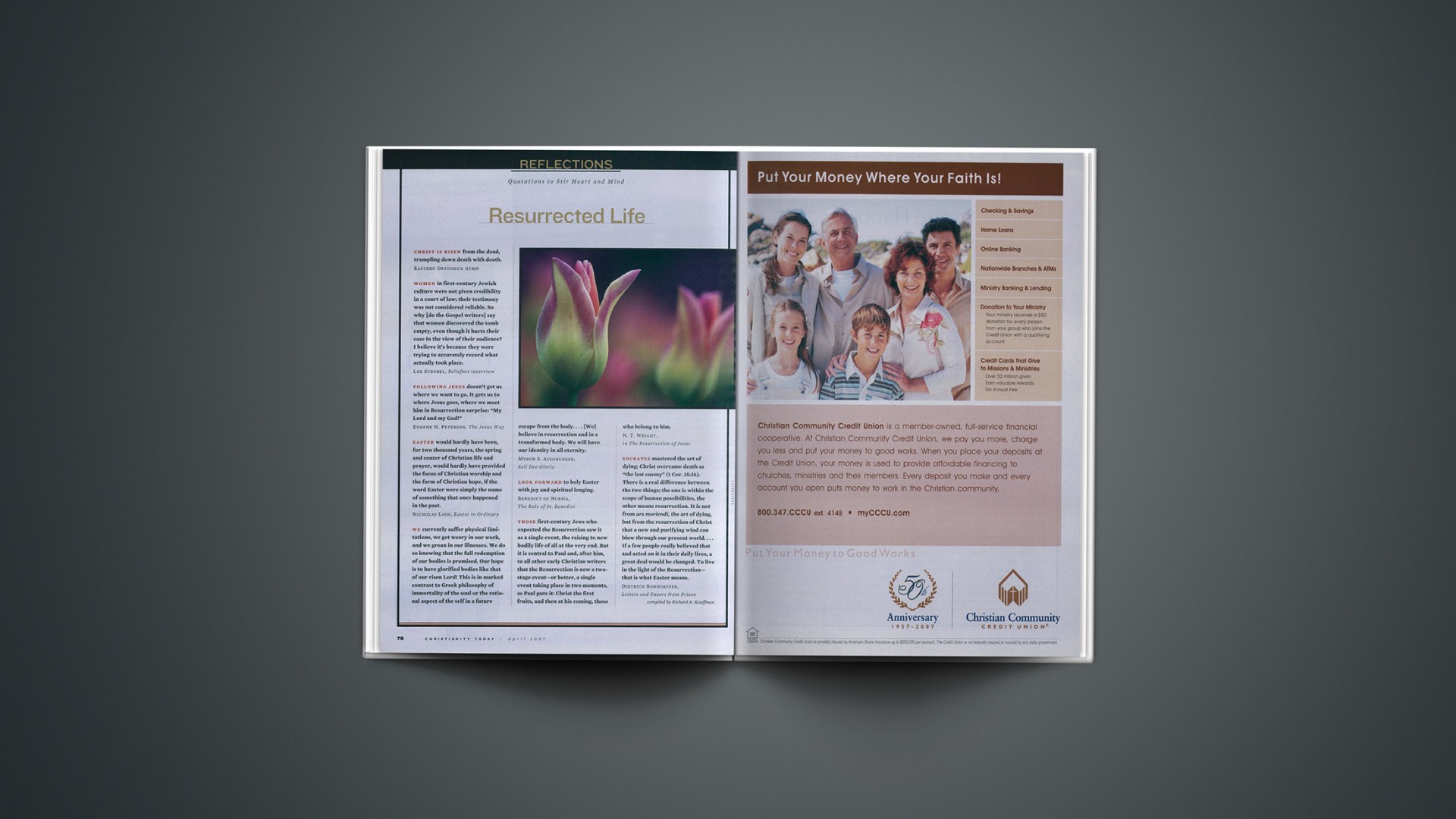Christ Is Risen from the dead, trampling down death with death.Eastern Orthodox hymn
WOMEN in first-century Jewish culture were not given credibility in a court of law; their testimony was not considered reliable. So why [do the Gospel writers] say that women discovered the tomb empty, even though it hurts their case in the view of their audience? I believe it’s because they were trying to accurately record what actually took place.Lee Strobel, Beliefnet interview
FOLLOWING JESUS doesn’t get us where we want to go. It gets us to where Jesus goes, where we meet him in Resurrection surprise: “My Lord and my God!”Eugene H. Peterson, The Jesus Way
EASTER would hardly have been, for two thousand years, the spring and center of Christian life and prayer, would hardly have provided the focus of Christian worship and the form of Christian hope, if the word Easter were simply the name of something that once happened in the past.Nicholas Lash, Easter in Ordinary
WE currently suffer physical limi-tations, we get weary in our work, and we groan in our illnesses. We do so knowing that the full redemption of our bodies is promised. Our hope is to have glorified bodies like that of our risen Lord! This is in marked contrast to Greek philosophy of immortality of the soul or the rational aspect of the self in a future escape from the body. … [We] believe in resurrection and in a transformed body. We will have our identity in all eternity.Myron S. Augsburger, Soli Deo Gloria
LOOK FORWARD to holy Easter with joy and spiritual longing.Benedict of Nursia, The Rule of St. Benedict
THOSE first-century Jews who expected the Resurrection saw it as a single event, the raising to new bodily life of all at the very end. But it is central to Paul and, after him, to all other early Christian writers that the Resurrection is now a two-stage event—or better, a single event taking place in two moments, as Paul puts it: Christ the first fruits, and then at his coming, those who belong to him.N. T. Wright, in The Resurrection of Jesus
SOCRATES mastered the art of dying; Christ overcame death as “the last enemy” (1 Cor. 15:26). There is a real difference between the two things; the one is within the scope of human possibilities, the other means resurrection. It is not from ars moriendi, the art of dying, but from the resurrection of Christ that a new and purifying wind can blow through our present world. … If a few people really believed that and acted on it in their daily lives, a great deal would be changed. To live in the light of the Resurrection—that is what Easter means.Dietrich Bonhoeffer, Letters and Papers from Prison
Copyright © 2007 Christianity Today. Click for reprint information.
Related Elsewhere:
Other Lent, Holy Week, and Easter reflections include:
Suffering God (March 5, 2007)
Lenten Inventory (February 1, 2004)
His Body, His Blood (June 2005)
Good Friday (April 3, 2000)
Jesus’ Cross (March 1, 2004)
Crucifixion (March 11, 2002)
Holy Week (April 1, 2006)
Holy Week (April 23, 2001)
Cross and Resurrection (April 1, 2003)
Easter Sunday (April 3, 2000)
He is Risen (April 1, 2004)










